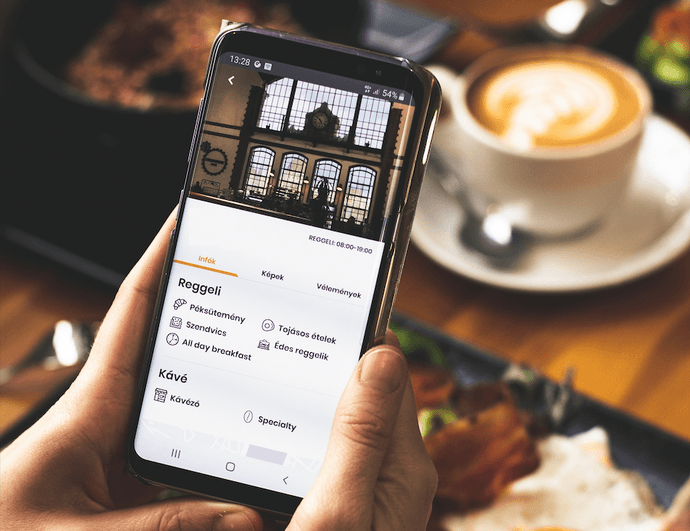How PMSs help mobile applications push hospitality forward
Guests’ satisfaction has been dependent on the work of hotel employees for a long time. However, hotels may not have enough staff (a common phenomenon today) or they may encounter understandable staff limits (people are not reachable nonstop or can be slow, etc.). This can lead to problematic situations such as check-in queues or insufficient communication with guests.

Therefore, the dependency of guest satisfaction on the performance of the staff only may not be the best possible solution for a hotel. Especially nowadays, when there is an option to supplement the work of hotel employees with available systems. Mobile applications, software designed to improve the care that guests receive in hotels, are a typically great support for the work of staff.
But it’s not just about mobile applications, the story of service improvements begins (traditionally) with PMSs.
PMS and third-party systems
Several systems are available for hotels. However, in order for their operation to develop thanks to the use of these systems, it is necessary to connect them “to solid foundations”, i.e. a good PMS. Not only because PMS simplifies hotel administration and increases its efficiency, but also because it gathers lots of information that third-party systems need to use. That’s why, for the good of the hotels, the responsibilities of PMSs should include “openness”, which means they should be enabling integrations with third-party software.
But not all PMSs work that way. In many places, it is a standard even today to use PMS which does not support integration. Such a hotel then becomes a “prisoner” of its own system and deprives itself of the possibility to move its services forward. On the other hand, this situation is ideal for PMS itself, it keeps the client in hand and does not let third-party software in. At the same time, the PMS tries to provide everything the hotelier needs through its native functions. But that will never work, PMSs cannot do everything. On the other hand, what they can (and must) be capable of, is collecting data and providing it to integrated systems.
Quality comes first
Not using the data provided by PMS limits the hotel’s potential and profits. Problems may arise in various places – dissatisfied guests may wait a long time for check-in, staff may spend endless hours manually entering and processing data or sending emails to guests. But we can solve or even prevent all such problems today – thanks to mobile applications for example.
Mobile applications complement (or substitute) the work of hotel staff. Just as hotel staff, mobile applications are guests’ company during the hotel trip, they only differ in the sense that some of them are “with the guests” throughout the whole stay whereas some accompany them just through part of it.
But why does the choice of PMS matter when it comes to mobile applications? Because the quality of the integration is of the essence. The more features the mobile application has, the more data needs to be transmitted and the more complex integration has to be built. It is still true that PMSs must be an open platform (providing APIs and integrating third-party systems) but that’s just half of the story. They must also be able to build complex integrations, i.e. exchange data with complex systems such as AeroGuest, a mobile application that is with guests from booking to check-out. The amount of data this system needs is huge. The quality of integration is crucial.
One small step for a hotelier, one giant leap for a hotel
As was said, the mobile application may accompany guests during part of their stay or take care of them from the journey’s start to its end. The choice of specific application(s) for a hotel depends on the hotelier – whether he wants to enable online check-in, install mobile locks on doors, automate communication with guests, increase revenue by supporting upselling, etc.
In the category of systems that are with the guest “from start till the end”, we can find applications such as AeroGuest, which is a system that allows online check-in/out, online payment for a hotel room, an upgrade of hotel room via mobile phone, upselling or installation of mobile locks. The second category consists of applications (GuestJoy, MyStay, Upsellguru), which focus on part of the journey of hotel guests, that means for example on automation of communication with guests, enabling online check-in, or increasing the effectiveness of upselling.
But if we distinguish the systems only according to how big part of the guest’s journey they can take care of, we remain too superficial. It is important to look deeper, for example, at the level of automation that various applications bring to hotels.
There is a huge difference between online check-in meaning only pre-filling in the information or meaning taking care of the whole process via mobile phone (and thus not having to come to the front desk upon arrival) or between having to pick up a door key/card or not (and thus going straight to the room after arrival). Guests can also spot a difference between the possibility of ordering extra services or upgrading the room directly through the mobile application and the situation in which the application just informs guests and they have to write an email or ask someone in order to get some of the available services.
It depends only on the hotelier which solution he picks. But whatever his preferences, the way to open the hotel to third-party systems must begin with the right choice of PMS. Its selection is a giant leap for the entire hotel, as it is the basis for the proper functioning of third-party systems that then take staff work and guests’ experience to the next level. That brings us back to the beginning. The more complex the application, the better integration a hotel needs. If a hotelier chooses the right PMS, his only limitations when picking mobile applications are his own preferences.